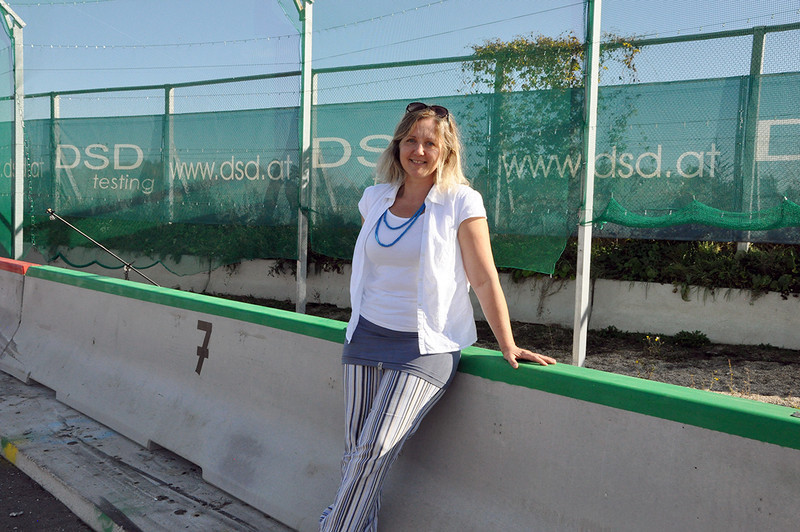Jersey barriers are modular concrete barriers employed to separate traffic. They are often used in the middle of motorways to prevent vehicles from crashes into the oncoming lane. This common problem with these barriers is that in the case of a crash concrete parts from the barrier splinter and endanger vehicles with heavy hits that might have a fatal ending. A particularly tough concrete mix, which prevents the concrete fragments from splintering was developed by Ildiko and her team and TU Wien in cooperation with the company DELTABLOC. The effectiveness of the innovative block barrier was demonstrated in a series of spectacular experiments with semi-trailers and buses (watch video below).
„Our goal was to develop a new type of concrete that can withstand high dynamic loads and is not brittle and fragile, but rather tough and flexible,“ explains Ildiko. For years she has been involved in the development and experimental testing of special and sustainable types of concrete that characterize with such features.
„First of all, we theoretically examined various material options, then implemented some of these ideas and tested the properties of the new concrete with stress tests at TU Wien“ she says. In cooperation with the industrial partner DELTABLOC, a leading developer of vehicle safety barriers, an innovative pendulum test was developed in order to be able to realistically examine the dynamic load of the impact on the vehicale in the laboratory. A load weighing 150 kg was dropped on the concrete test specimen in a precisely defined manner and their fracture behavior was analyzed.
Real concrete guide walls were then made from the three most promising concrete mixes and tested in Allhaming in Upper Austria. It was impressively demonstrated that even a 38-tonne semi-trailer truck hitting the barrier with a velocity of 60 km/h, and a 13-tonne bus with an approaching speed of 70 km/h can not impact the newly developed block-barrier.
Read web articles on the topic (all articles in German):







